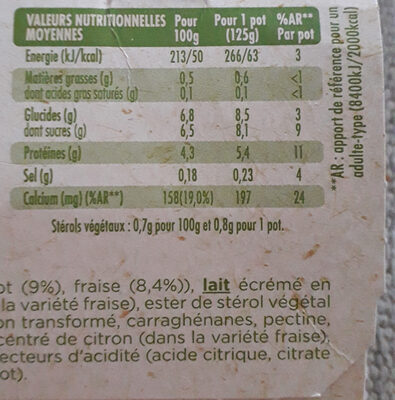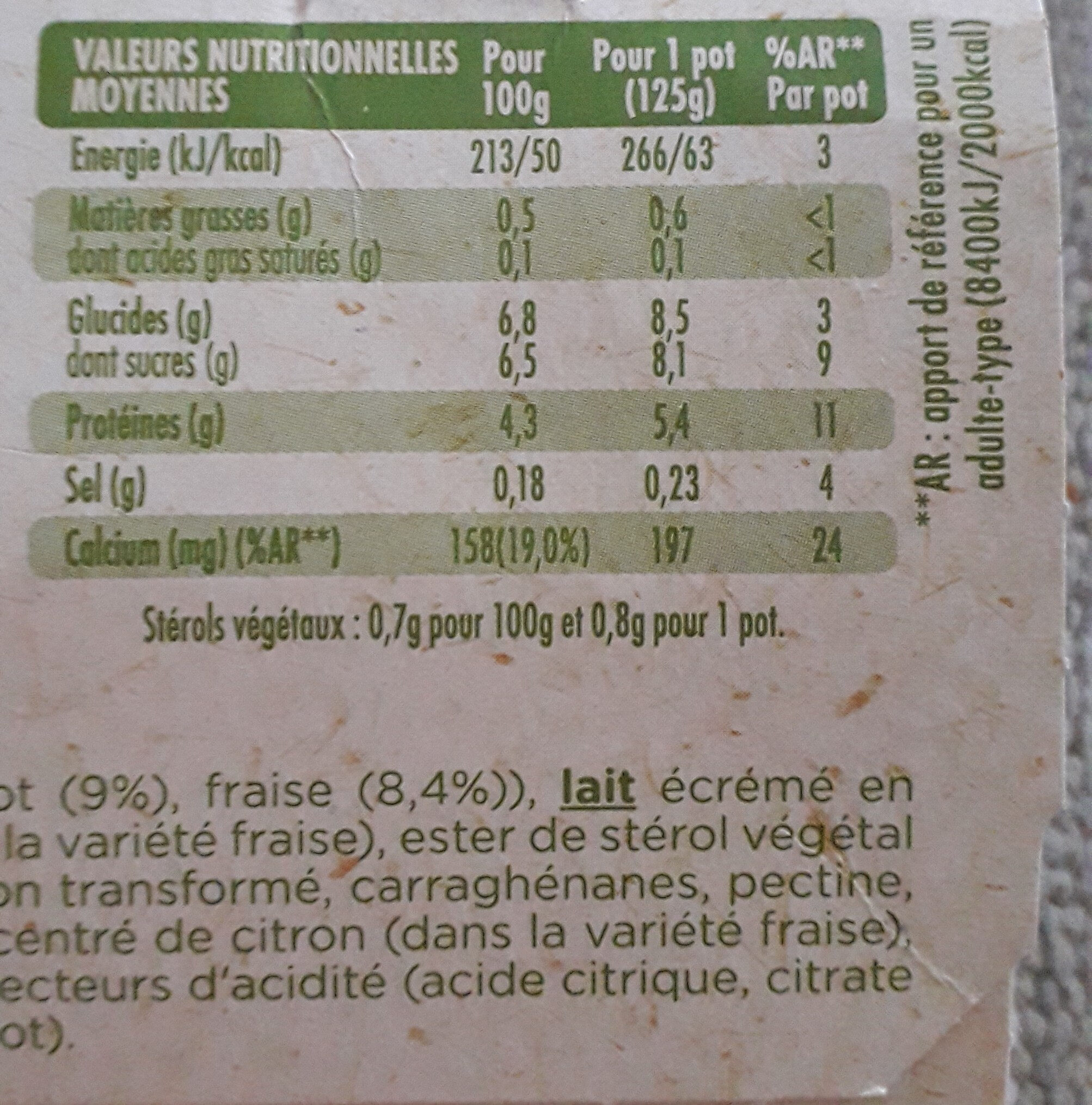Danacol fruits panache 125 g x 8 - Danone - 1 kg
Some of the data for this product has been provided directly by the manufacturer DANONE FRANCE.
Barcode: 3033490081751 (EAN / EAN-13)
Common name: Spécialité laitière aux fruits, avec édulcorants
Quantity: 1 kg
Packaging: Cardboard, Fresh, fr:Pot en plastique
Brands: Danone, Danacol, Danacol fruits
Categories: Dairies, Fermented foods, Fermented milk products, Desserts, Dairy desserts, Fermented dairy desserts, Fermented dairy desserts with fruits, fr:Spécialités laitières, fr:Spécialités laitières aux fruits
Labels, certifications, awards: fr:0 % mat gr, fr:Enrichi en stérols végétaux, fr:Pour réduire le cholestérol
Origin of ingredients: France
Traceability code: FR 76.260.001 CE - Ferrières-en-Bray (Seine-Maritime, France)
Countries where sold: France
Matching with your preferences
Other information
Conservation conditions: A conserver entre +1°C et + 6°C maximum
Customer service: D.P.F.F., CS 50149 92565 Rueil-Malmaison Cedex
Report a problem
Data sources
The manufacturer DANONE FRANCE uses CodeOnline Food to automatically transmit data and photos for its products.
Manufacturers can use the Open Food Facts free plaform for producers to access and complete this data, and to obtain reports, analysis and product improvements opportunities (e.g. better Nutri-Score).
Product added on by openfoodfacts-contributors
Last edit of product page on by org-danone-france.
Product page also edited by cyn, dea, jeremy64, kiliweb, moon-rabbit, packbot, roboto-app, scari, teolemon, yuka.UUlFTE12Z2YvZFUyd3NFNjBFblZvOHBVK3FTS1RUNmxHL3RKSVE9PQ.












